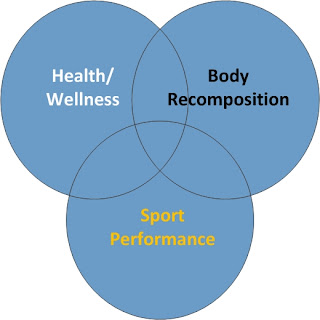One of the things I'm always wary of any article talking about weight-loss or fitness is the lack of citations. If you say something like "studies have shown" or reference a study but don't provide a way to access said study, I'm already suspicious.
I agree with posters that say that nutrition is too complex to prescribe an exact method for everyone (aside from the calories in < calories out, but even that is just a baseline). However, going off anecdotal responses is not enough.
I can appreciate what Opiate is talking about because it's exactly the kind of stance that should be taken. That's not to say we're all super-attentive and knowledgeable even when we post links. I for one fall into the habit of glancing through studies as opposed to reading them comprehensively.
This isn't to say that studies are the end-all. Any big-topic area of research for nutrition will probably have conflicting reports. When such a thing is present, I believe the best approach is not to pick sides, but to take both into account (after careful review) and make your own judgement.
Really, it never hurts to be too cautious when it comes to weight loss, especially if you're presumably doing research for your own health. When I approach weight loss, I generally go through the following process when picking a plan:
1. Determine what do I want to accomplish
2. Take a look at all the options and target some that would seemingly work for me given my situation.
3. Research research research. Anecdotal evidence is a start, but press for the science of it. If I don't get what something means, I ask for clarification.
4. If there is conflicting information, ADJUST. I very much like ClassyPenguin's stance on this. I agree with this. If I'm wrong on anything and can be corrected, the better. There is nothing to be gained by being dogmatic on this issue.
5. If something's not working for me, ADJUST. Maybe my execution is what is failing me, or maybe it's what I believe to be true is actually incorrect. In any case, giving up is not an option for me. I would rather correct than give up.
Anyways, I want to contribute something that I came up with when a friend of mine asked about cleanse/fast diets. My immediate response was that it was ridiculous and stupid. However, given what I just typed above, you can imagine why I didn't want to just state that to her. I wanted to give her a well thought out response (other than the fact that there have been no studies championing it). I outlined reputable sources stating how cleanse diets really had no studies showing it's benefits.
More illuminating for me, and something to think about when it comes high-frequency fast/cleanse diets, is that not all the calories burned will come from fat.
I present this paper that I found on the limit of how much calories from fat your body can burn in a single day here:
http://www.ncbi.nlm.nih.gov/pubmed/15615615
I present this not as fact, as I'm actually only beginning to delve into the literature (which unfortunately is under a pay wall. Luckily I still have university access but work has prevented me from giving it a full review) but instead as something to consider.
Now, we'll note that this journal of theoretical biology. This isn't necessarily a red flag, but as things are theoretical, we want to make sure we don't take the findings as gospel. But, as the abstract outlines, they find that there is a limit on the maximum energy that one can tap from fat stores, which is 290 +/- 25 kJ/kgd. Or, in other words, about 30-31 (without the error term) kCal per pound of FAT in your body per day.
Let's take me as an example then. If I'm 150 pounds and at 16.2% body fat, then I would most likely only be able to burn off around 750 calories of fat per day. In other words, if by some chance I was eating... say, 1000 calories below maintenance, I would start using lean body mass as an energy source (assuming sugars are depleted. The studies mention (again, in the abstract) that this calculation is for individuals with a calorie deficit). Once we factor in activity/exercise, we complicate this a bit.
It's something to think about when you go on diets that aim to reduce fat as quickly as possible through massive calorie deficits.
To tie it back up to the original theme of my post: If there is someone that presents a study that goes against this or reads this study and says, "something is wrong with their procedure or analysis. Thus, this should be discounted." then I'll happily change positions. Anecdotal evidence won't cut it for me though.

